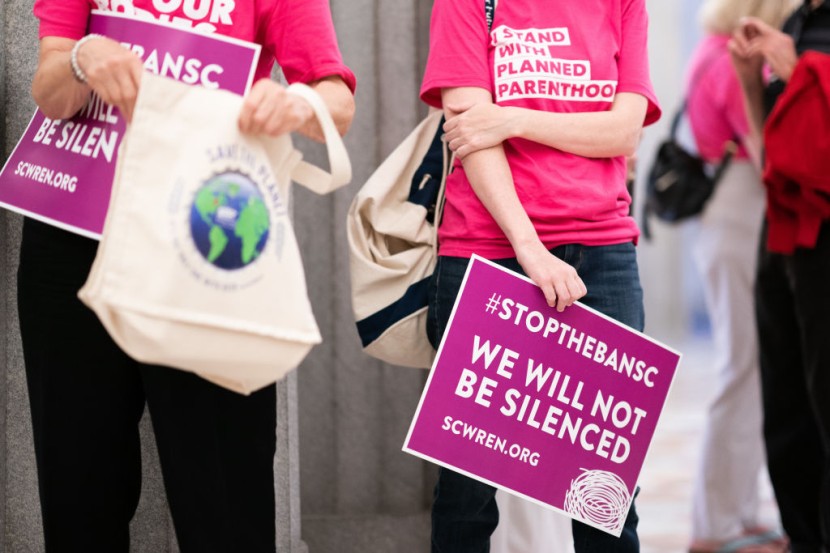
- South Carolina lawmakers pass six-week abortion ban that is expected to face legal challenges
- Republican Gov. Henry McMaster is set to sign the bill into law that would ban the majority of abortions in the state
- The bill passed in the state mostly along party lines despite three female Republican lawmakers in opposition
South Carolina lawmakers passed a six-week abortion ban, which is when most pregnant women do not even know that they are carrying a child, which is set to be signed into law by Republican Gov. Henry McMaster.
Despite legislators' support for the new ban, many expect the bill to face legal challenges from opposition and supporters of abortion. Most southern US states have moved to curb abortion rights following the Supreme Court overturning Roe v. Wade last year.
South Carolina Passes Six-Week Abortion Ban
The vote passed mostly along party lines despite three female Republican lawmakers opposing the bill in the state's Senate. The director of public affairs for Planned Parenthood South Atlantic, Vicki Ringer, said that her organization would request a temporary restraining order after McMaster signs the bill, as per BBC.
In a Twitter post, Ringer said that 27 Republican men voted to ban abortion in South Carolina, adding that the vote would result in women dying. The recently-passed bill is the "Fetal Heartbeat and Protection from Abortion Act."
The bill would ban abortions in most cases after early cardiac activity can be detected in a fetus or embryo by health professionals. This is usually six weeks into a woman's pregnancy.
It would also allow for terminations of up to 12 weeks in cases of rape or incest and also provides an exception for medical emergencies. Currently, South Carolina allows abortions through the first 22 weeks of pregnancy.
The recent bill passed with a vote of 27-19 and it notes that doctors who violate its regulations would lose their license and could face civil lawsuits, felony charges, a fine of up to $10,000, and up to two years of jail time, according to the Washington Post.
Potential Legal Challenges
The ban would also give residents under 16, the state's age of consent, who are seeking abortions without the consent of their parents, about six weeks to obtain permission from a judge if they are not victims of rape or incest.
Those who oppose the ban have argued that that was not enough time, but supporters said that because minors can't consent by law, they need to be covered by the rape exception and 12 weeks.
Furthermore, the bill requires a biological father to pay child support starting at conception of the child. The new bill also allows anyone to file a complaint regarding medical professionals performing abortions against the regulations. Parents of a minor are also allowed to file a civil suit against a doctor who performed an abortion.
A member of Pro-Life America, an anti-abortion group, Susan B. Anthony, celebrated the state's passage of the bill, expressing her gratitude to Republicans in South Carolina for their "persistence," said the New York Times.
© 2025 HNGN, All rights reserved. Do not reproduce without permission.








